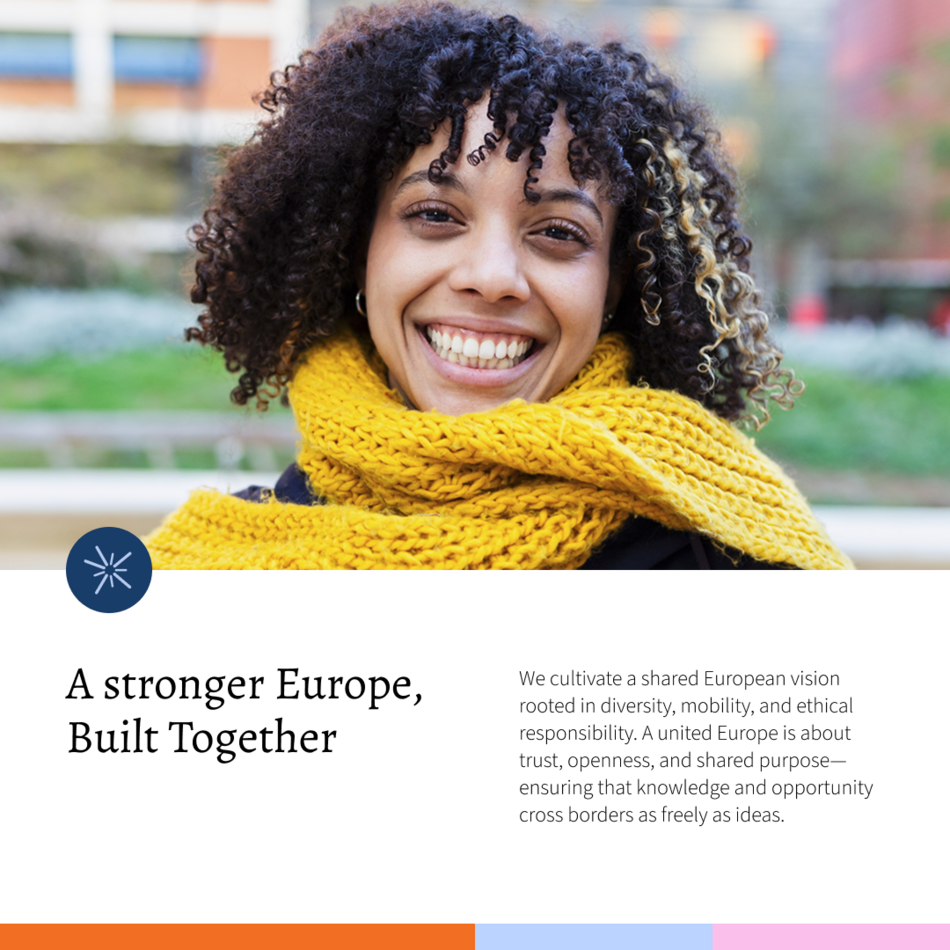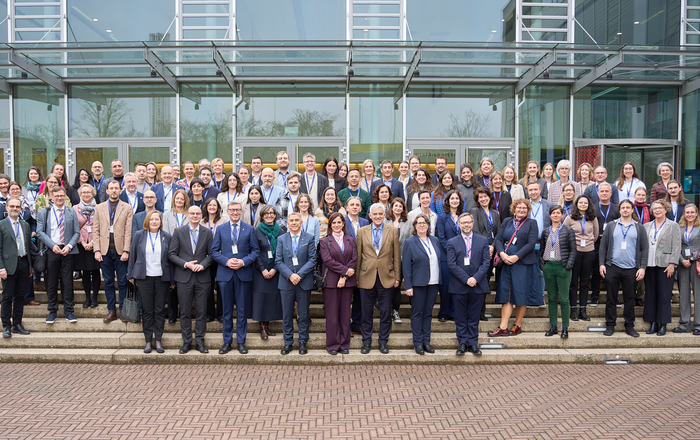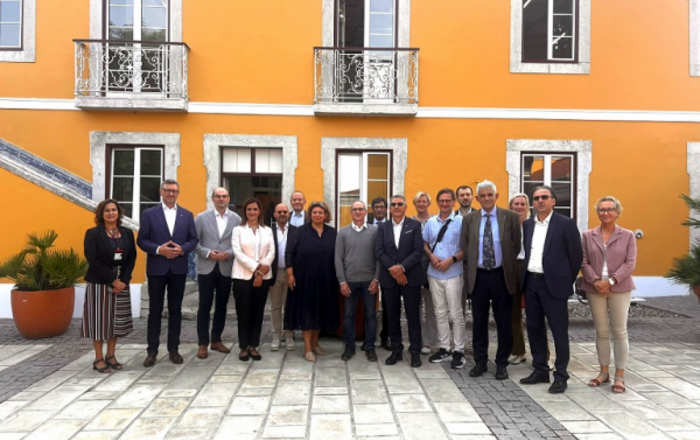Transforming European Higher Education: The ChallengeEU Alliance
The ChallengeEU Alliance is a coalition of nine colleges and universities is dedicated to cultivating holistic, sustainable collaborations and engaging excellence across European universities. The ChallengeEU Alliance is on a mission to break down traditional academic boundaries and existing research and education models and foster an innovative, inclusive ecosystem that empowers students as the vanguards of positive change. With approximately 83,000 students and 9,000 staff members, the alliance is dedicated to driving positive societal impact through innovative teaching, research, and knowledge transfer. By uniting universities with industry, policy makers, and civil society, ChallengeEU aims to create a collaborative environment where diverse perspectives are celebrated, and regional challenges are addressed head-on.
The ChallengeEU alliance connects Offenburg University of Applied Sciences with:
the Engineering School Hochschule ECAM La Salle in Lyon (France),
the Universidade Europeia in Lissabon (Portugal),
the Latvia University of Life Sciences and Technologies in Jelgava (Latvia),
the Mid Sweden University in Sundsvall (Sweden),
the University of Applied Sciences and Arts Northwestern Switzerland in Windisch (Switzerland),
the South East European University in Tetovo (North Macedonia),
the Universidad Europea in Valencia (Spain) and
the University Ermland und Masuren in Olsztyn (Poland).
The wide geographical balance and the inclusion of institutions in rural, peripheral, and urban areas, ensures that innovation potential is harnessed across all regions. By addressing regional disparities and promoting inclusivity, ChallengeEU contributes to a more balanced development of the continent.
The alliance is committed to contributing to the European Strategy for Universities and the new European Innovation Agenda. By co-designing solutions for Smart Specialization Areas aligned with the SDGs, ChallengeEU aims to become a role model for regional European universities. This transformation will foster practical solutions and global contributions, advancing academic excellence and promoting open science and innovation.
The tasks in detail are:
- challenge the European Education System: ChallengeEU aims to transform the European education system, integrate global and regional challenges into its curricula and prepare students to navigate a world of increasingly complexity. By embracing agility and digitalization, ChallengeEU will offer flexible online courses, open-access resources, and alternative credentialing options, transforming the alliance into a single, interconnected campus. This approach ensures that students and researchers can adapt to changing conditions and thrive in an ever-evolving landscape.
- address Regional Challenges: ChallengeEU takes a localized approach to global issues. By integrating Smart Specialization Strategies, the alliance will tackle unique regional challenges, bridging disparities and promoting equitable growth
- promote a Challenge-Based European Education System: ChallengeEU aims to drive innovation based on real problems and societal needs. In strong partnerships with local industry, leveraging their expertise and resources to drive innovation and development. Testbeds for sustainable technologies will be established, fostering research initiatives that address both global and regional challenges.
- embrace the Challenges of Sustainable Responsibility: ChallengeEU is committed to sustainable responsibility. The alliance values collaboration, empathy, and care for the planet and future generations. Guided by the Sustainable Development Goals (SDGs), ChallengeEU promotes an innovation paradigm that contrasts sharply with approaches emphasizing competition and individualism. This ethos of responsibility extends to engaging deeply with local communities, empowering them to participate in shaping their future through education, research, and innovation.
- face the Challenges of Community Engagement: ChallengeEU aims to empower local communities to participate in co-creating the future of their regions through education, research, and innovation. Promote critical thinking and problem-solving skills through challenge-based learning methodologies.
- meet the Challenge of Accessible Education: ChallengeEU is dedicated to making education accessible to all. The alliance addresses barriers faced by diverse learners, including those with disabilities and from varied socio-economic backgrounds. By fostering an environment of inclusive education, ChallengeEU ensures that everyone has the opportunity to continue learning and growing throughout their lives.
- address the Challenges of Lifelong Learning: ChallengeEU recognizes the importance of lifelong learning and provides strategies to help individuals stay current in their fields throughout their careers.
ChallengeEU envisions open European campuses as dynamic ecosystems where diverse stakeholders collaborate on value-driven innovation. Students play a pivotal role, acting as bridges that amplify the impact of the academic community on planetary well-being. By eliminating barriers to education and fostering collaborative regional innovation ecosystems, the alliance will strive to create a more inclusive and resilient European higher education landscape.
The Core Values of ChallengeEU:
- Excellence: Upholding and enhancing inclusive standards of academic excellence.
- Inclusivity: Embracing diversity and ensuring equal access to quality education.
- Sustainability: Integrating environmental, social, and economic considerations into all activities.
- Collaboration: Fostering partnerships within and beyond the alliance, engaging stakeholders from various sectors.
- Responsibility: Promoting transparency, inclusivity, and societal responsiveness in all endeavors.
- Global Perspective: Embracing international perspectives and fostering effective global collaboration.
ChallengeEU is redefining the future of European higher education by fostering holistic, sustainable collaborations and engaging excellence across the continent. This transformative alliance is poised to make a lasting impact, ensuring that European universities remain at the forefront of innovation and societal progress.
As part of this initiative, which is co-financed by the European Union, the ChallengeEU team works in various specialist areas to promote sustainable cooperation between the alliance members. The team is made up of experts from various disciplines who contribute their expertise in the areas of internationalisation, innovation, sustainability, and university development. Together, they pursue the goal of strengthening cooperation within the alliance, promoting future-oriented projects at the European level, and internationalising Offenburg.
- Tobias Hagen - Vice President for Internationalisation
- Sofiia Hecker - Secretary General
- Ilona Maier - Open Innovation Manager
- Daniel Walter - E-Campus Manager
- Fred Fellner - ODEI Officer
- Klara Wehrlein - Internationalisation Manager
- Ana Biljesko - Finance Officer
- Zina Qabbani - Communications Manager
Feel free to contact the team here: challenge-eu@hs-offenburg.de.
Member of the "European University Alliances" initiative

ChallengeEU has been included in the "European Universities Alliances" and as part of this flagship initiative of the European Higher Education Strategy ist will be funded by the EU Commission from 2024 to 2028. The "European Universities Alliances" initiative currently comprises 64 alliances of European universities with more than 560 higher education institutions of all kinds from all over Europe. These ambitious multinational alliances develop long-term structural and strategic cooperations based on shared values and agreed principles. The aim of this initiative is to educate a new generation of Europeans open to collaboration and to build a strong identity based on European values. The "European Universities Alliances" also aim to enhance the quality of higher education and strengthen its ties with the socio-economic environment. This collaboration is expected to result in a new quality of research and innovation across Europe, benefiting both society and the economy.




